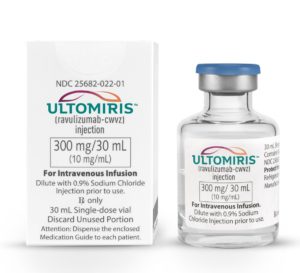Article No. 365
3 August 2020
Please note the study is now complete and that no further contributions are being sought. The results of this study will be published on the website in early October.

Ravulizumab was approved for aHUS by the FDA in October 2019. It has recently been licensed in Europe too, maybe even Japan.
As a result clinicians in those places can prescribe ravulizumab for new on-setting aHUS patients and also to transition patients from eculizumab to ravulizumab. If the new drug is funded.
For some countries it will be a matter of a private insurance application. In other countries with socially funded health care , a national decision making committee will make a decision which would apply to all patients in that country, or a part of the country.
Frequently these days such committees seek input from the patients themselves. This is done according to the protocol adopted by each country, usually via patient advocacy organisations.
A key problem is that although patients can say what it is like being treated with eculizumab they may have no experience of the new technology, yet.
There is no evidence available anywhere about what patients think about Ravulizumab, and certainly nothing in the public domain from those with experience of both eculizumab and ravulizumab and the transition from one to the other.
aHUS alliance Global Action is therefore seeking to find that out, but to do so needs the help from aHUS ravulizumab patients from anywhere in world. They are needed to answer a few questions about the experience. Their responses will be summarised into a report, which for the first time will give a picture of ravulizumab treatment in patients’ own words.
It will be unique.
Global Action urgently needs to hear from those who have :
1. transitioned to ravulizumab from eculizumab after long term use;
2. transitioned to ravulizumab following an initial three months of eculizumab protocol
3. received ravulizumab treatment only.
For each of those care pathways , the patient or carer’s experience and
thoughts on the advantages and disadvantages of using ravulizumab compared with previous treatment will be asked for.
Any information received will be treated in confidence and any comments used in the final Report will be anonymised.
Anyone wishing to participate can contact len@ahusallianceaction.org for more information.
The urgency of responses is because a report is needed soon and it will take time to write it.
So we need people who can complete their full response by 6 September 2020.
This is the first time that this kind of call to action has been tried but it may be a testament to the strength of the global aHUS community that it can provide a specific patient voice when needed.

